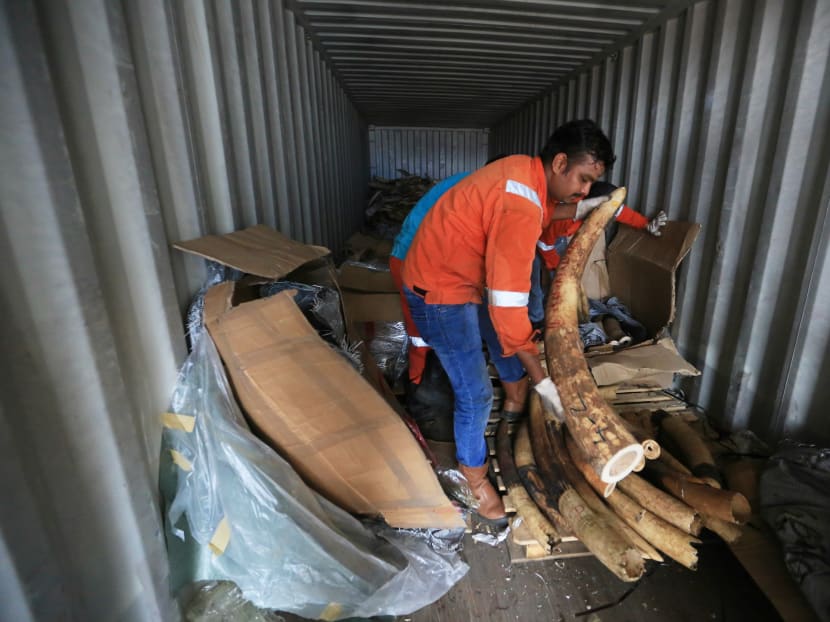Govt proposes ban on sale of elephant ivory in Singapore
SINGAPORE — Businesses and individuals in Singapore will no longer be able to buy or sell all forms of products made from elephant ivory, under a ban proposed by the Agri-food and Veterinary Authority (AVA).
SINGAPORE — Businesses and individuals in Singapore will no longer be able to buy or sell all forms of products made from elephant ivory, under a ban proposed by the Agri-food and Veterinary Authority (AVA).
Public display of elephant ivory and ivory products could also be banned, except for educational purposes such as in museums or the zoo.
The proposed domestic ban comes after the AVA announced in March last year that it was studying implementation details.
It also comes in the wake of a recent campaign by the World Wide Fund for Nature (WWF), which set up a fictitious online store called Ivory Lane on July 31 to highlight shortcomings in wildlife laws here. The online store, which sold accessories made from “vintage” ivory, had sparked outrage from members of the public before its real purpose was revealed.
The AVA is conducting a public consultation on the proposed ban and is inviting views and comments until noon on Dec 27. The public may email AVA_CITES [at] ava.gov.sg or send traditional mail to its headquarters at JEM Office Tower in Jurong.
WHY IT MATTERS
Elephant populations have plunged in recent decades due to poaching, habitat loss and conflict with humans. Tens of thousands of elephants are estimated to be killed each year for their ivory, the WWF said.
International trade on all forms of elephant ivory products has been banned since 1990 under the Convention on International Trade in Endangered Species of Wild Fauna and Flora (Cites). Singapore is a party to Cites.
However, domestic trade is permitted if traders can prove the items were imported before 1990 or acquired before the inclusion of the relevant elephant species in Cites Appendix I.
Species in Cites Appendix I are threatened with extinction and Cites prohibits international trade in their specimens for commercial purposes. Asian elephants and African elephants were included in Cites Appendix I in 1975 and 1990, respectively.
A Cites conference in 2016 urged parties to close their domestic markets for trade in raw and worked elephant ivory. Countries such as China and the United States have taken action or announced plans to restrict domestic trade in elephant ivory.
WHAT YOU NEED TO KNOW
The total ban on elephant ivory sales here that the AVA is proposing is in line with its broader commitment to tackle the illegal ivory trade and support elephant conservation. It also sends a “strong signal” that Singapore is committed to curbing demand for ivory products despite a “small and inactive domestic market”, said the AVA.
Based on the AVA’s proposal, a grace period of up to three years will be given to affected stakeholders to decide if they wish to keep, donate or destroy their existing stocks of elephant ivory and ivory products.
Under Singapore’s Endangered Species (Import and Export) Act, local sales of all rhino and tiger specimens have been banned since 2006.







